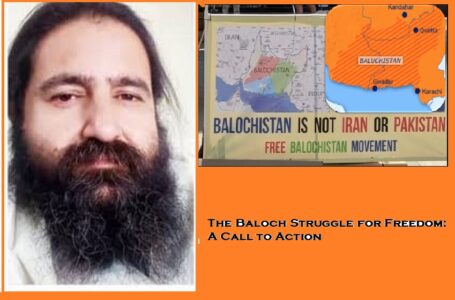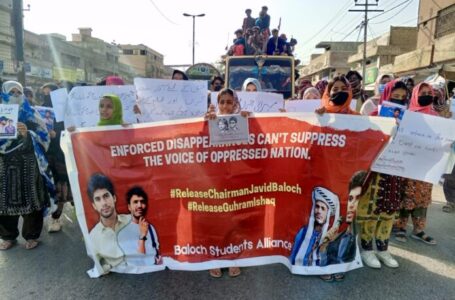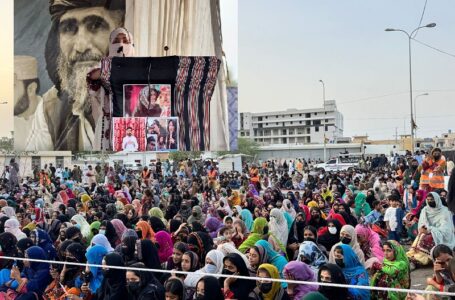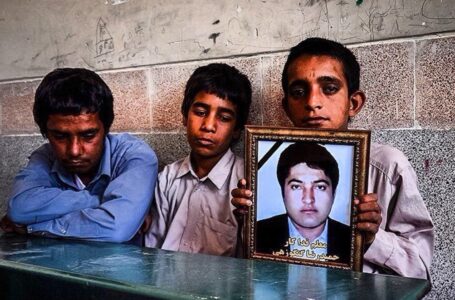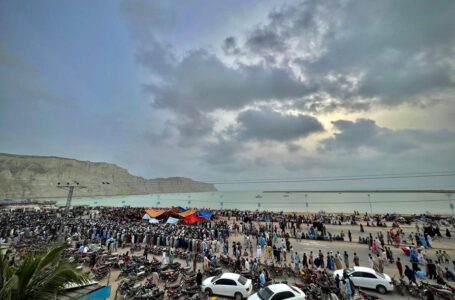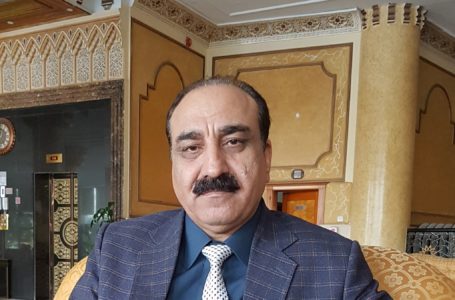Balochistan: FBM Condemns State Violence Against Baloch Women and Children in Karachi
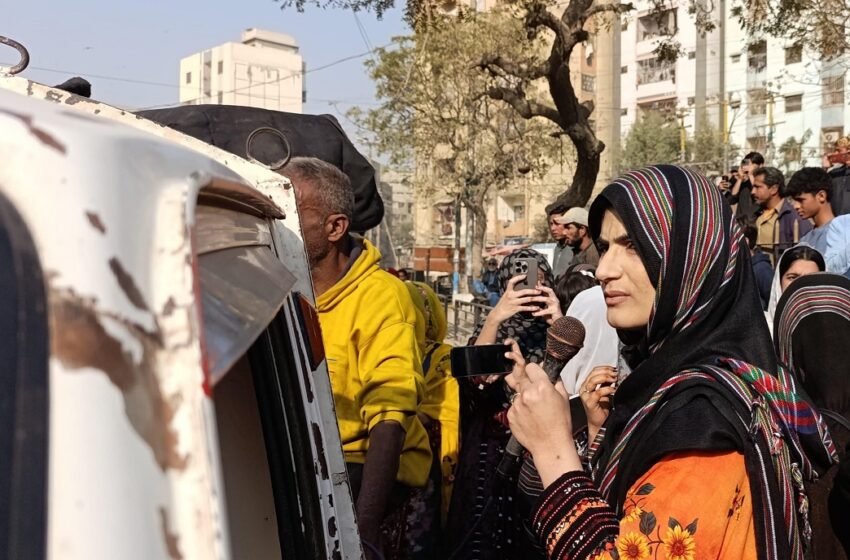
QUETTA: The Free Balochistan Movement (FBM) has condemned recent violence of Pakistani forces against unarmed Baloch women and children during a peaceful protest in Karachi, highlighting the brutal repression faced by the Baloch people. The protest, which took place in Mai Kolachi, a historically Baloch region of Karachi, was organised to demand the recovery of individuals forcibly disappeared by state authorities in occupied Balochistan.
In a statement released Monday, the spokesperson for the FBM called the actions of the Pakistani police and paramilitary forces “a clear illustration of the violent and oppressive relationship between the Baloch people and the occupying forces.” The statement emphasised that such violence against women and children is a reflection of the ongoing repression faced by Baloch citizens in Pakistan and Iran, where the authorities continue to subjugate the Baloch nation in an attempt to erase their distinct identity and political autonomy.
The FBM spokesperson pointed to historical patterns of violence against indigenous populations in occupied territories, comparing the Pakistani military’s actions against Baloch civilians to the brutal tactics used by colonial forces in other parts of the world. The statement drew parallels with the oppression faced by the people of East Pakistan (now Bangladesh), alleging that the same Punjabi-dominated army is currently inflicting similar atrocities in Balochistan. The FBM said that Baloch women and children are being denied even the basic political space to voice their demands and are subjected to systemic violence to suppress their resistance.
“The occupation forces—both in Pakistan and Iran—are using violence to instil fear and prevent the Baloch from engaging in political or social movements. This is a direct attack on our identity and our right to freedom,” the spokesperson said.
The FBM also urged Baloch political activists to unite across the artificial borders imposed by British colonialism, from Bandar Abbas to Karachi and present a collective front to the world. The movement stressed that the Baloch people’s struggle is not just confined to one region but is a unified call for freedom across all territories that historically belong to the Baloch.
“Karachi, historically known as Mai Kolachi, is an integral part of Baloch land. No amount of occupation or passage of time can erase the Baloch nation’s claim to this territory,” the spokesperson stated, rejecting any argument that suggests Pakistan’s occupation of Balochistan, including Karachi, should be legitimised due to historical changes in territorial control. The FBM reiterated its position that the Baloch will never relinquish their claim to their ancestral lands.
The FBM also addressed the growing rhetoric from certain factions that argue the push for a united Balochistan will lead to increased violence and genocide. The spokesperson rejected these claims, stating that the pace of genocide against the Baloch has already reached alarming levels under both Pakistani and Iranian occupation. The statement called on the international community to recognise the systematic oppression faced by the Baloch people and to support their struggle for an independent, unified Balochistan.
The FBM concluded by reaffirming that the only solution to the Baloch nation’s suffering lies in the liberation of a united Balochistan, free from the artificial borders drawn by British colonial powers. Only through this liberation, the spokesperson argued, can the Baloch people achieve freedom and end their suffering under the current occupiers.
The violence against Baloch protesters in Karachi has ignited renewed calls for solidarity among Baloch communities worldwide and has brought the issue of Balochistan’s independence back into the spotlight. The FBM’s statements highlight an ongoing struggle for national recognition and the right to the Baloch right to freedom, amidst a broader context of colonial and imperial histories.

